Mental health disorders are increasing at an alarming rate, affecting individuals across all ages and backgrounds. From excessive worrying and eating disorders to bipolar disorder, panic disorder, and schizophrenia, these conditions disrupt everyday life, strain relationships, and often complicate other medical treatments.
What many don’t realize? Mental health isn’t just handled in a psychiatric hospital or by mental health professionals with a doctoral degree in clinical psychology or counseling psychology. It’s showing up in primary care, emergency psychiatry, pain medicine, sleep medicine, and even specialties like adolescent psychiatry and geriatric psychiatry.
So whether you're planning to become a primary care provider, a specialist, or work in addiction psychiatry, you'll inevitably be treating patients with mental disorders whether diagnosed or not.
As an NP student, your rotation in mental and psychiatric care is one of the most critical stepping stones in your journey. You'll learn about accurate diagnosis, treatment options like talk therapy, psychiatric medications, medication management, and even innovative approaches like transcranial magnetic stimulation or deep brain stimulation.
But let’s be honest, psychiatric care isn’t always intuitive. Many NP students walk into clinicals unsure of how to address a patient's mental well-being, especially when conversations involve talking about trauma, self-harm, or recreational drug use.
That’s why we teamed up with Jacqueline King, APRN, FNP-BC, and tapped into the expertise of seasoned health professionals in both research and clinical practice to bring you the Psychiatric Care Handbook, a must-have resource for any NP in a mental health-related field.
This guide helps bridge the gap between your master’s degree coursework and real-world care. It’s your roadmap to navigating psych clinicals with confidence and understanding how to treat the person’s mental health, not just their physical aspects.
Click here to download your FREE Psychiatric Care Handbook and level up your NP training in mental health care.
Click here to download the Psychiatric Care Handbook for FREE!
Now, in this blog post, we'll explore why mastering psychiatric care is essential for every NP student, regardless of their chosen specialty.
The Current Landscape of Mental and Psychiatric Care in the U.S.
In recent years, the United States has witnessed a significant rise in mental health disorders, underscoring the critical need for accessible and effective mental health services. According to Mental Health America, nearly 1 in 5 American adults experience a diagnosable mental health condition annually.
Prevalence of Mental Health Conditions
Mental health conditions such as anxiety disorders, depression, bipolar disorder, and schizophrenia are increasingly prevalent. Anxiety disorders alone affect approximately 42.5 million adults in the U.S. Additionally, about 22.5 million adults experience major depression each year .
These mental disorders often co-occur with other medical conditions, complicating diagnosis and treatment. For instance, individuals with chronic illnesses may also suffer from depression or anxiety, necessitating integrated care approaches that address both physical and mental health aspects.
Access to Mental Health Care
Despite the high prevalence of mental health conditions, access to mental health care remains a significant challenge.Over half of adults with a mental illness do not receive treatment, highlighting systemic barriers within the healthcare system .
Factors contributing to this treatment gap include a shortage of mental health professionals, especially in rural areas, and limited insurance coverage for mental health services. Moreover, stigma surrounding mental illness continues to deter individuals from seeking help.but use
Emerging Treatments and Innovations
Advancements in medical treatment for psychiatric disorders have introduced innovative options such as transcranial magnetic stimulation and deep brain stimulation. These treatments offer alternatives for patients who do not respond to traditional therapies, expanding the arsenal of interventions available to mental health professionals.
Furthermore, the integration of telehealth services has increased access to mental health care, allowing patients in underserved areas to receive therapy sessions and medication management remotely.
The Expanding Role of Nurse Practitioners in Psychiatric–Mental Health Care
In a nation where mental health disorders continue to rise and access to care remains uneven, Psychiatric–Mental Health Nurse Practitioners (PMHNPs) are becoming essential players in the delivery of mental health services.
These NPs aren’t just supporting roles—they’re frontline providers with the education, certification, and authority to diagnose and manage psychiatric disorders, prescribe psychiatric medications, and deliver talk therapy (also called psychotherapeutic interventions).
Currently, over 35,000 PMHNPs are practicing across the U.S., a number that increases when you include clinical nurse specialists. Most are trained at the graduate level with extensive training in pharmacology, physical assessment, psychopathology, and evidence-based psychotherapy. Their role is not just clinical—it’s holistic, focusing on both the mental well-being and physical aspects of each patient’s health.
Yet, despite their capabilities, PMHNPs remain underrecognized in federal workforce planning. According to recent research. They are often lumped into vague categories like "other providers who prescribe behavioral health medication," erasing their specialized expertise in treating mental illness.
Some federal reports don’t even list them by title when discussing staffing models for behavioral disorders, despite calls for providers with prescriptive authority which PMHNPs have in full in 26 states and the District of Columbia.
PMHNPs are also heavily involved in outpatient mental health care, especially in federally qualified health centers and community clinics. Around 70% of them practice in outpatient settings, and nearly half combine prescribing with talk therapy, helping reduce fragmentation in treatment plans.
Many also provide medication-assisted treatmentfor substance use disorders and are trained in treating patients with Medicare and Medicaid an especially important role as psychiatrist participation in Medicare continues to decline.
These NPs are not just treating excessive worrying or mood disorders, they're managing complex cases involving recreational drugs, self-harm, chronic pain, and family history of mental illness. Their scope includes working in consultation liaison psychiatry, addiction psychiatry, adolescent psychiatry, and geriatric psychiatry, making them one of the most versatile and impactful segments of the mental health workforce.
The takeaway? As an NP student stepping into psychiatric care, you're not filling a gap, you’re becoming part of a powerful movement to redefine how mental health care is delivered in America. PMHNPs are leading the charge, and there’s never been a more urgent time to step into that role.
Why Your Role as a Future PMHNP Has Never Been More Critical
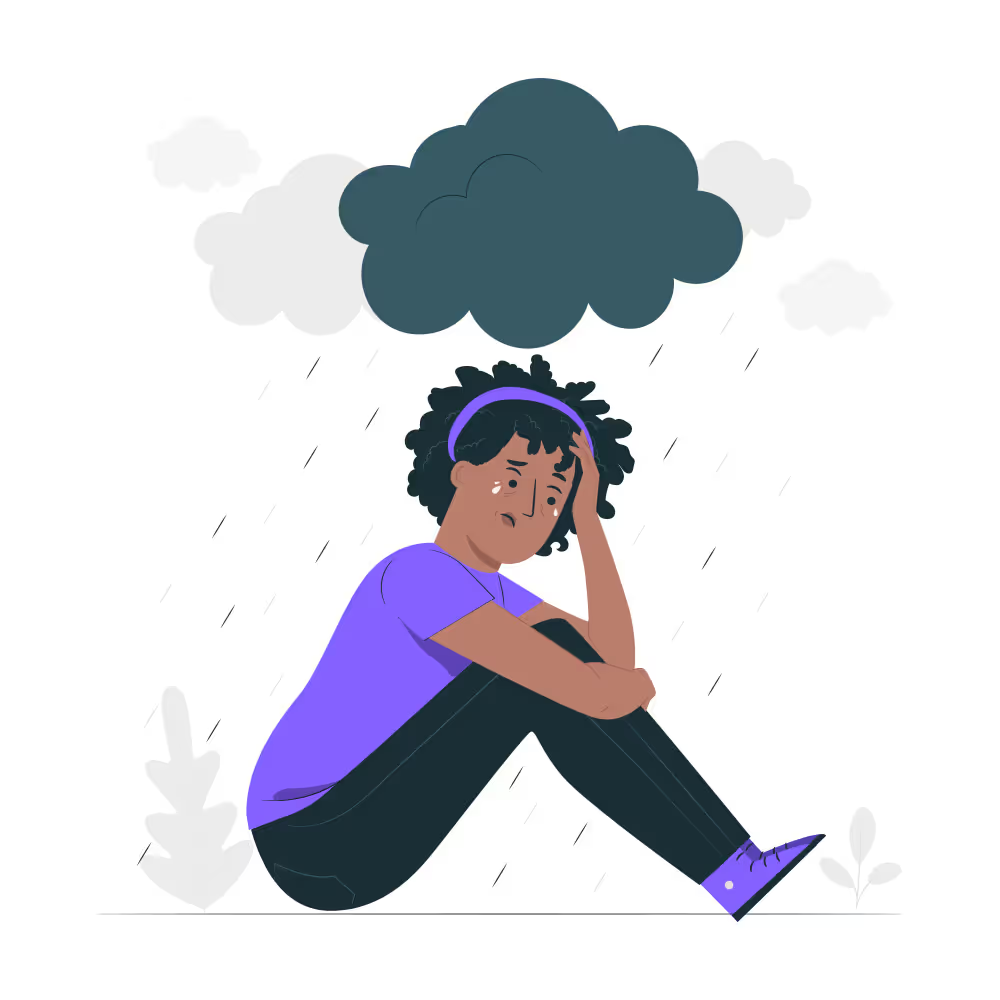
As a future Psychiatric–Mental Health Nurse Practitioner, you are not a backup plan. You are the plan.
Mental health disorders don’t follow a schedule, a specialty, or a setting they show up anywhere and everywhere. And when they do, you will be the one equipped to respond. Because your training goes beyond surface symptoms. You’re learning to see what others might overlook.
Picture this:
- A child labeled “difficult” who’s actually battling behavioral disorders like ADHD and anxiety.
- A new mom showing signs of postpartum depression, quietly drowning in a system that often brushes off emotional distress.
- An older adult in a primary care setting whose depression is masked by physical complaints and chronic illness.
- A man in pain management who’s self-medicating with recreational drugs because his undiagnosed mood disorder has never been addressed.
- A patient facing a life-threatening diagnosis, crushed under emotional weight no scan or lab can detect.
These aren’t rare cases. These are your future caseload.
And when mental illness shows up in the form of sleepless nights, withdrawn behaviors, or unexplained pain, it will be you, the PMHNP, who knows how to connect the dots, provide an accurate diagnosis, and build a treatment plan that includes talk therapy, medication management, or both.
The truth is, psychiatric care is at the heart of holistic health care. When mental health goes untreated, physical outcomes suffer. Healthcare costs rise. Quality of life plummets. The risks, even of self-harm or suicide, grow.
But you? You’re here to interrupt that cycle.
You’re training to recognize what others miss. To lead with compassion, grounded in clinical expertise. To treat the whole person, not just the diagnosis.
Because you're not just a future provider. You're a force for change in a field that needs you more than ever.
Why NP Students Struggle (and Why That’s Okay)
Now that we’ve explored the pivotal role PMHNPs play in mental health care—and the tremendous responsibility that comes with it—it’s important to acknowledge what stepping into this role as a student actually feels like.
You may be excited about your upcoming psychiatric rotation, eager to translate your coursework into real-world impact. But it’s also completely normal to feel overwhelmed, unprepared, or unsure of how you’ll rise to the challenge. Psychiatric care isn’t just about checking boxes—it’s nuanced, complex, and deeply human. Many PMHNP students struggle with:
Translating Classroom Knowledge into Practice
- It’s one thing to learn about neurotransmitters and DSM-5 criteria in a lecture. It’s another to sit across from a patient and decide on a treatment plan.
- The gap between theory and clinical judgment can feel enormous, especially when navigating sensitive or unfamiliar scenarios.
- Understanding the foundations of psychiatric disorders—how they develop, manifest, and evolve—can still feel abstract when applied to real people.
Navigating the Complexity of Mental Health Diagnoses
- Symptoms often overlap between psychiatric conditions, and clear-cut presentations are rare.
- Conducting comprehensive assessments, ruling out differential diagnoses, and formulating accurate diagnoses takes time and confidence.
- Building therapeutic rapport—while also assessing risk, managing medications, and documenting thoroughly—can feel like a juggling act.
Finding Your Voice as a Clinician
- Knowing the material is one thing; owning your role in the room is another.
- Many students struggle with imposter syndrome, second-guessing their clinical instincts or hesitating to speak up in multidisciplinary teams.
- Learning how to set boundaries, guide conversations, and advocate for your patients takes practice—and confidence you’ll build over time.
- Developing your own therapeutic style while staying grounded in evidence-based care is part of what transforms you from a student into a trusted mental health professional.
You are not alone in feeling this way. These challenges are not a reflection of your ability—they are part of the process. But you don’t have to stumble through it blindly.
Then, What Should I Do…
Mastering the skills to recognize, assess, and address mental health concerns is not just a nice-to-have; it's a critical component of providing comprehensive, holistic patient care.
That’s exactly why we partnered with Jacqueline King, APRN, FNP-BC, to create the Psychiatric Care Handbook, a practical, student-focused guide built to help you make sense of psych clinicals. It bridges the gap between classroom learning and clinical practice, offering insights, checklists, and real-world strategies from experienced psychiatric NPs.
Ready to feel more confident, competent, and connected in your psych rotation?
Click to download the FREE Psychiatric Care Handbook and take your next step toward becoming the PMHNP your future patients need.
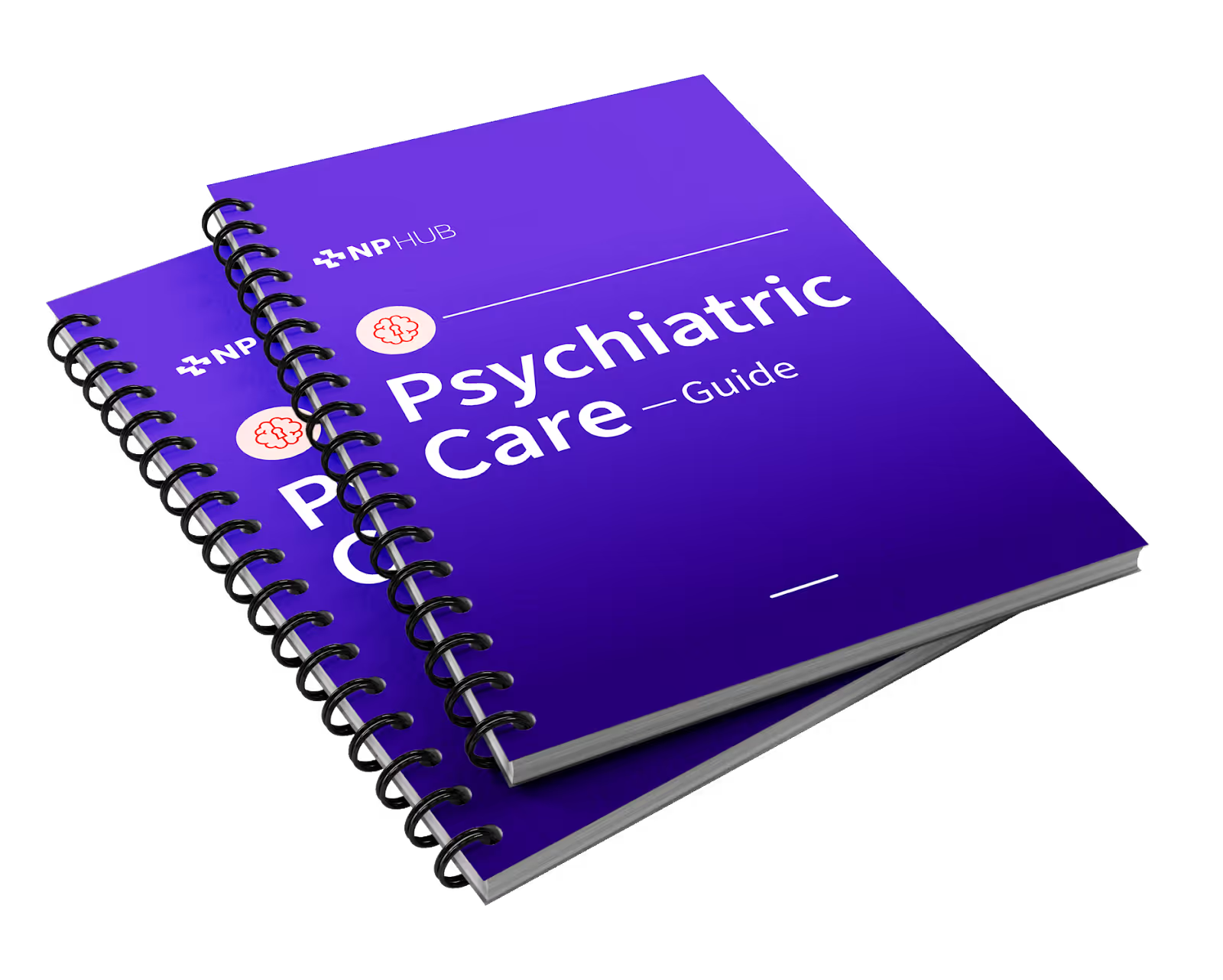
This handbook is packed with pro tips and proven strategies for thriving in a clinical setting and providing exceptional care. You'll learn…
- Theories on the development of psychiatric disorders
- The environmental role in psychiatric disorders
- How to establish the patient-provider relationship
- Types of psychiatric disorders
- Medical conditions with psychiatric symptoms
- Review of the 5 most common psychiatric disorders seen in clinical practice (depression, anxiety, schizophrenia, bipolar disorder, and substance use disorder)
Whether you're preparing to enter your rotation as an NP student or the workforce as a new graduate, this handbook is an invaluable resource that can help you navigate the challenges of psychiatric care. So why wait?
Download your FREE copy today and take the first step to becoming a more skilled NP
Conclusion: Your Path to Mastery Starts Here
Mastering psychiatric care isn’t just a checkbox on your clinical to-do list—it’s foundational to becoming the kind of Nurse Practitioner who delivers truly holistic, life-changing care.
Mental health doesn’t exist in a vacuum. It touches every diagnosis, every patient, and every treatment plan. As a future PMHNP, your ability to recognize, understand, and treat mental health disorders is one of the most powerful tools you bring to the healthcare system.
Psychiatric care is complex. It’s emotional. It’s unpredictable. And no matter how many lectures you’ve attended or textbooks you’ve studied, stepping into real-world clinical encounters can still feel daunting. You’re not just learning how to assess and diagnose, you’re learning how to hold space for pain, manage risk, navigate ambiguity, and advocate for those whose voices are too often ignored.
You don’t have to fumble through this alone. Whether you're weeks away from clinicals or already mid-rotation, this guide will help you move from uncertainty to clarity from self-doubt to confidence.
Your patients don’t just need a provider who knows what to do. They need one who knows how to be with them through every symptom, every setback, and every breakthrough.
You’re on your way to becoming that provider. Let’s make sure you have every tool you need to get there.
Find a preceptor who cares with NPHub
Book a rotation.webp)




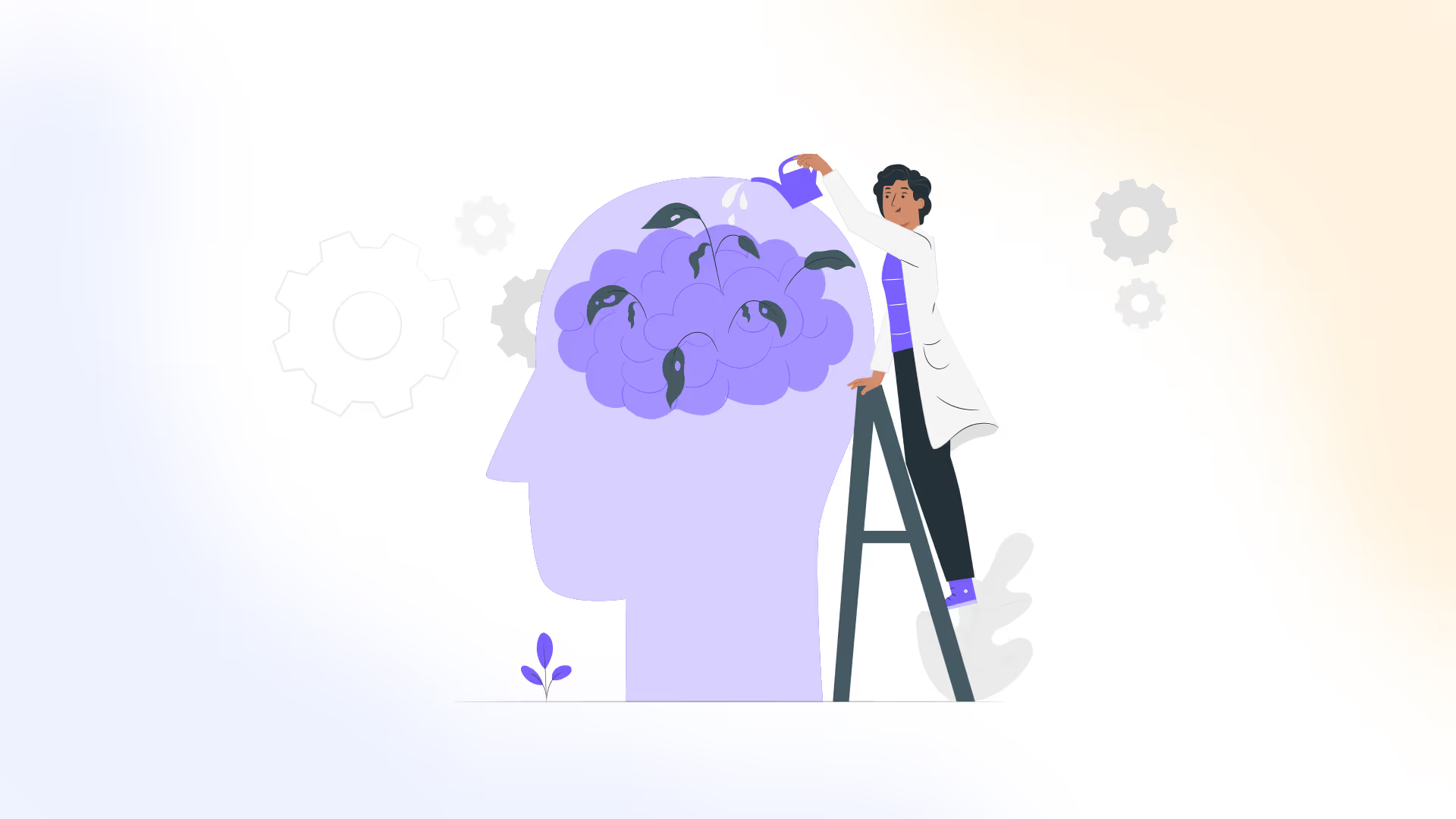



.webp)
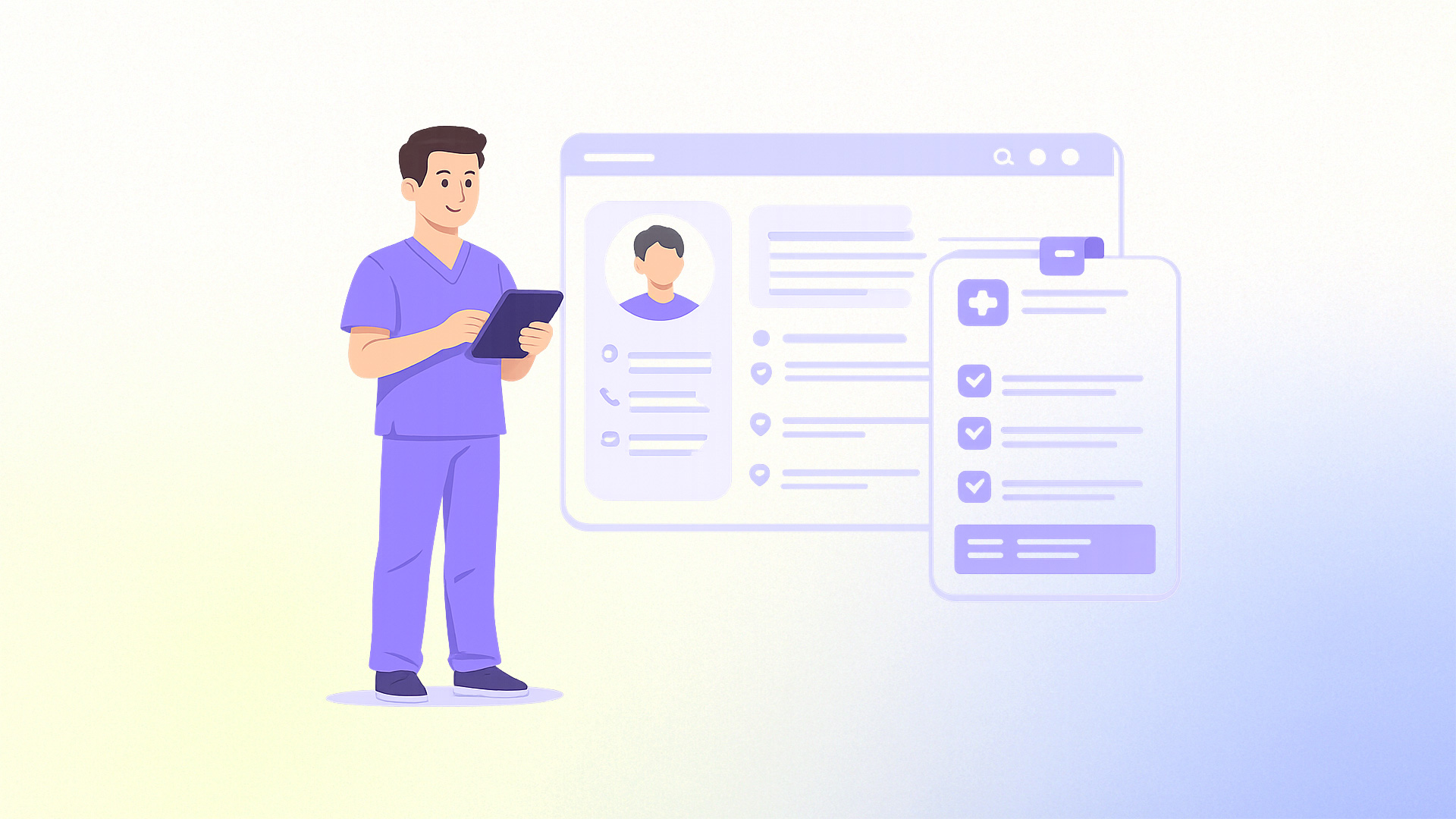

.webp)
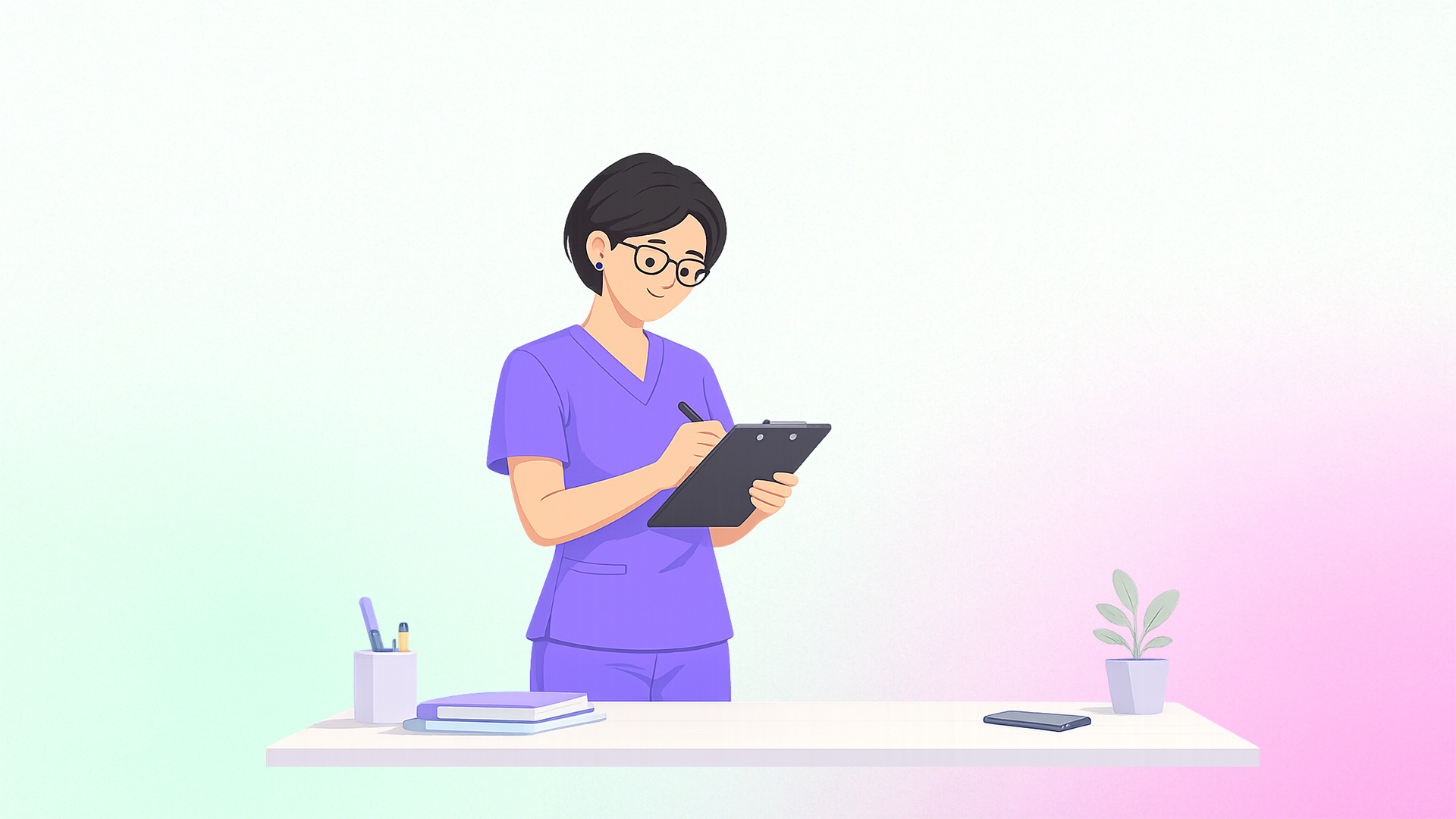
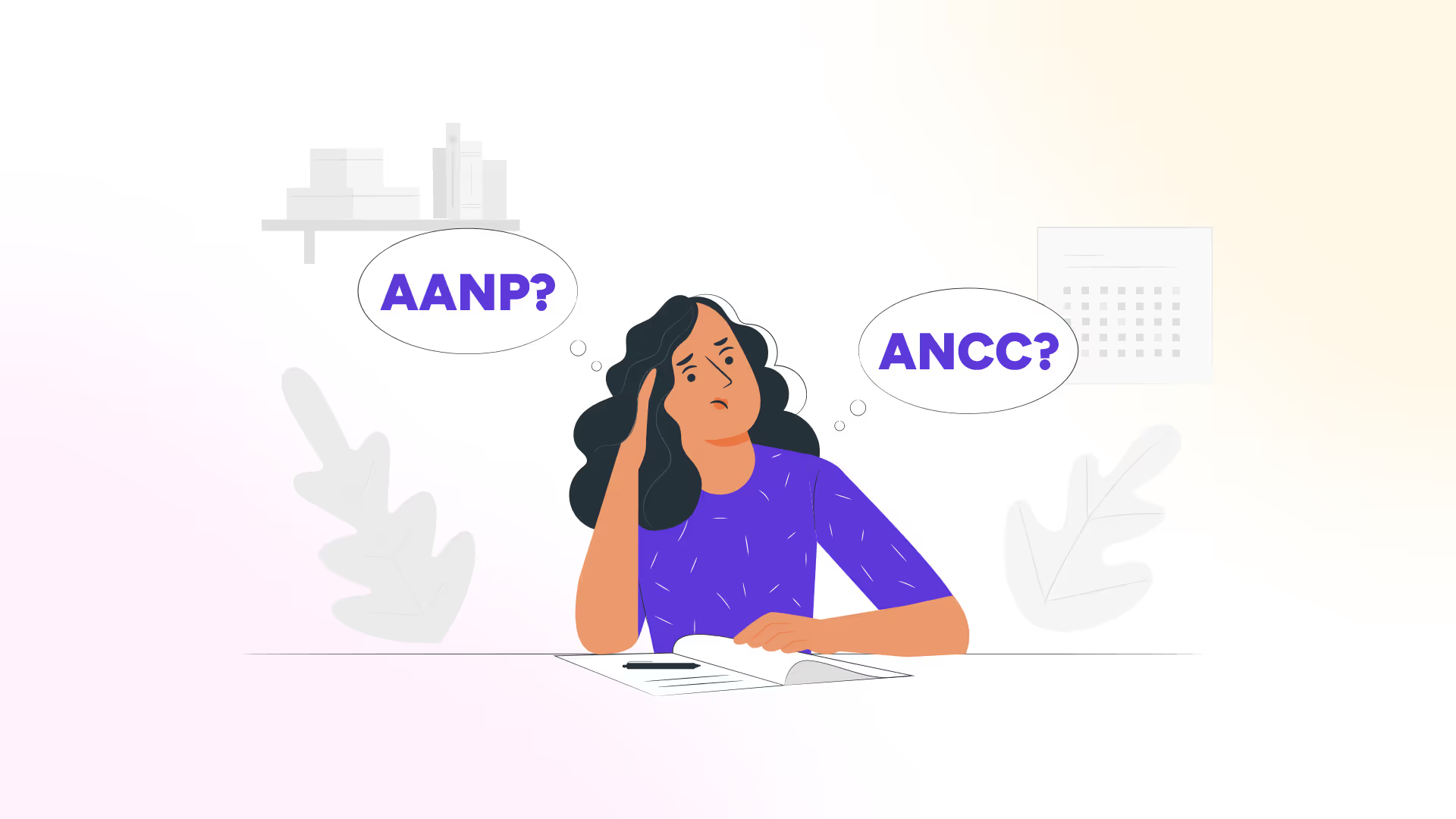

%20(3)%20(2).svg)
.webp)